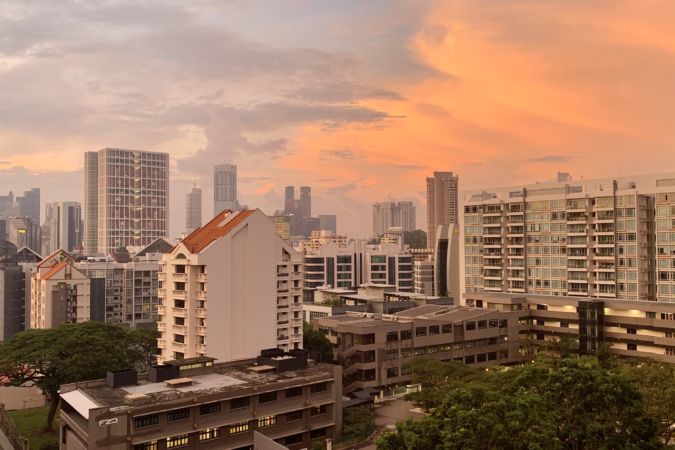The strangest side-effect of lockdown in Singapore has been the silence. Normally, the soundtrack of the city is the relentless drilling, droning and driving of construction, a backdrop as permanent as the towers of Marina Bay Sands. On April 7th, when the machinery fell quiet, you could suddenly hear corks popping all over the city.
Two months later, the novelty of lockdown has decidedly worn off, but, thankfully, Singapore is heading towards reopening – albeit tentatively. There is a hope that bars and restaurants will be permitted to receive customers again before the end of June – but for the moment, wine consumption remains a strictly solitary affair.


For the eight months prior to lockdown, I had been getting to know life in ‘the Switzerland of Asia’. I relocated here last July, proud to be classified as the ‘trailing spouse’ of my wife, whose work brought us here. As its nickname suggests, Singapore is a comfortable, familiar and easy place to live for Europeans, with wine culture that would be indistinguishable from London’s, were it not for the exorbitant prices.
Punitive taxes mean that bottles that are affordable in the UK cost up to four times that price in Singapore. There is an impressive diversity of choice – from the neutral to the natural, and everything in between – but when Jacob’s Creek Merlot costs the equivalent of £24, that wealth of choice seems somewhat moot.
With a little experience, however, it has become possible to sniff out bargains. Singaporeans love a sale, and discounts (especially on older vintages which haven’t sold through) often yield canny buys. Furthermore, because duty is a fixed cost, mid-priced wines – worth between £20 and £30 in London, say – can more often be found for comparable prices here.
Last month I opened nearly 50 bottles of wine at home, partly for the webinars that I am hosting for the new Singapore outpost of 67 Pall Mall, and partly to try and keep up with the insatiable thirst of Steven Spurrier. They represented a typically diverse roster of bottles, in style, prestige and price: from fizz to flat, humble to holy and bargainous to bankrupting.
In a newly tranquil world, I tasted and scored and drank them all, aided only by my fellow jailbird (the spouse behind whom I happily trail), who was not reluctant to participate. With all outside distractions removed, it was the ideal circumstances in which to make objective assessments.
This, however, was precisely the problem. Because when wine is stripped of context, it loses its most valuable quality. Some of the bottles I tasted were beautifully complex, perfectly balanced and eloquently expressive – all the intrinsic sensations that make wine so delicious. Yet in such impassive and restricted circumstances, the experiences were unavoidably bathetic – like blowing out the candles on your birthday cake all alone.
This sad fact was only emphasised by the inordinate enjoyment brought by those bottles which conjured existing memories; where intrinsic flavour was enhanced by extrinsic emotion. A bottle of Craggy Range’s Gimblett Gravels Syrah brought back the taste of an exquisite dinner at the winery’s cellar door in Hawke’s Bay last December, followed by a starlit walk through the dark forest of vines that lay outside.


A mini-vertical of Crawford River Riesling – one of Australia’s very best – prompted a remote reunion with its winemaker, an inexhaustibly wonderful woman who has been a friend since we met in Australia over a decade ago and subsequently studied for the MW together.
Iona’s stylish Sauvignon Blanc evoked a mist-shrouded visit to Elgin in 2018, including a dialectical, book-filled conversation that lasted the whole car journey back to Cape Town, before an indulgently long lunch and a blissfully anaesthetised flight home to London.
Unless we’ve had uncannily similar experiences, these associations won’t mean much to you – and that’s exactly my point. Without that emotional attachment, wine loses so much of its meaning, becoming reduced to a mere set of descriptors, rhapsodic though they may be.
The uncharacteristic hush of locked-down Singapore might have presented, ostensibly, the ideal circumstances in which to taste wine, but without human interaction to accompany them, the experiences are rendered hollow and impotent. I long for the racket to return.






